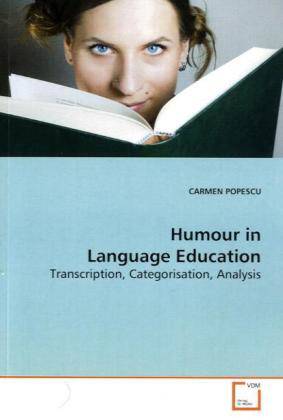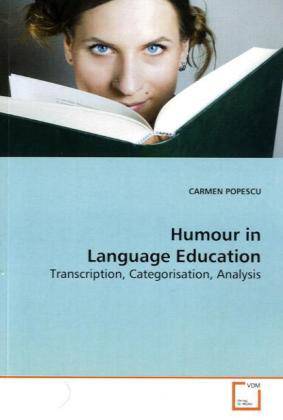
Je cadeautjes zeker op tijd in huis hebben voor de feestdagen? Kom langs in onze winkels en vind het perfecte geschenk!
- Afhalen na 1 uur in een winkel met voorraad
- Gratis thuislevering in België vanaf € 30
- Ruim aanbod met 7 miljoen producten
Je cadeautjes zeker op tijd in huis hebben voor de feestdagen? Kom langs in onze winkels en vind het perfecte geschenk!
- Afhalen na 1 uur in een winkel met voorraad
- Gratis thuislevering in België vanaf € 30
- Ruim aanbod met 7 miljoen producten
Zoeken
Humour in Language Education
Transcription, Categorisation, Analysis
Carmen Popescu
Paperback | Engels
€ 111,45
+ 222 punten
Omschrijving
This book has been written on the assumption that a
view of life based on the humorous acceptance of a
plurality of meanings is more comprehensive and
rewarding than one which takes for granted the
existence of one real world, which separates humour
from the realm of the serious. This view can
constitute the source of an interest in the
examination of humour in a social setting
traditionally associated with solemnity, i.e. the
classroom. The present study is about the role of
humour in language education, focusing principally on
the examination of humorous interaction. The study
uses spoken data in a naturalistic setting and draws
on traditions of classroom discourse analysis,
conversation analysis and (micro)ethnography. Foreign
language classroom-specific humour is described, a
form of humour characteristic of foreign language
classrooms, which facilitates learning by
transmitting knowledge in the form of humorous talk
around the text. The conclusions should be especially
useful to textbook writers, teachers and teacher
educators who may be interested in using humour in
their language classes.
view of life based on the humorous acceptance of a
plurality of meanings is more comprehensive and
rewarding than one which takes for granted the
existence of one real world, which separates humour
from the realm of the serious. This view can
constitute the source of an interest in the
examination of humour in a social setting
traditionally associated with solemnity, i.e. the
classroom. The present study is about the role of
humour in language education, focusing principally on
the examination of humorous interaction. The study
uses spoken data in a naturalistic setting and draws
on traditions of classroom discourse analysis,
conversation analysis and (micro)ethnography. Foreign
language classroom-specific humour is described, a
form of humour characteristic of foreign language
classrooms, which facilitates learning by
transmitting knowledge in the form of humorous talk
around the text. The conclusions should be especially
useful to textbook writers, teachers and teacher
educators who may be interested in using humour in
their language classes.
Specificaties
Betrokkenen
- Auteur(s):
- Uitgeverij:
Inhoud
- Aantal bladzijden:
- 248
- Taal:
- Engels
Eigenschappen
- Productcode (EAN):
- 9783639179026
- Verschijningsdatum:
- 17/07/2009
- Uitvoering:
- Paperback
- Afmetingen:
- 152 mm x 229 mm
- Gewicht:
- 367 g

Alleen bij Standaard Boekhandel
+ 222 punten op je klantenkaart van Standaard Boekhandel
Beoordelingen
We publiceren alleen reviews die voldoen aan de voorwaarden voor reviews. Bekijk onze voorwaarden voor reviews.









